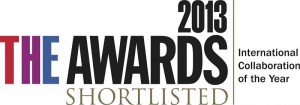The Erasmus Mundus social economy project has recently been shortlisted for the UK Times Higher Education International Collaboration of the Year 2013. This shortlisting is very meaningful for me and for others in the project.
The project is international in its scope (see partners and associate partners/supporters) and aims to gain insight into the values and belief systems that people working in the social economy have in different regions of the world, and the way in which this motivation is turned into action with a social purpose. It aims to make this knowledge accessible and practical within higher education. It has international collaboration, the value of learning from each other and of creating knowledge together, as its lifeblood.
We started the project last year with a strategic planning meeting for all partners. For some of us it was the first time we had met and it was highly important to work face-to-face to begin the project. Within one country and one culture, the meaning around ‘social economy’ and ideas about the possible social purpose of business can vary hugely. With partners from two continents it was not our intention to produce a definition of the social economy, which would have been impossible. (See the article by Dacin, Dacin and Matear (2010) which identifies 37 current definitions!). Rather we discussed at length and moved concepts and ideas around on paper and on our ‘sticky wall’ and came to agreement together about the criteria we would use within the project to identify the organisations we wished to research.
Designing the research tools: the questionnaire and the in-depth interviews, has been a lengthy process. Questions that are meaningful to a social enterprise in York, UK, may have no resonance in Cusco, Peru. I have learnt a lot about getting different perspectives on the formulation of the questions themselves to enable people to give answers that get to the heart of what they want to say. In this respect we have had hugely valuable input from our international advisers, associate partners and from others who have looked at our work with fresh eyes and pointed out problematic areas and ways forward.
The most inspiring thing about being part of this project is the contact with people from all over the world who are motivated by the its aims and have been prepared to put many hours and days of work in to help move things forward, who have written pieces (see this blog), sent interesting articles and who have given a word of encouragement when it’s been most welcome.
The results of the award are announced in November. Whatever happens, getting this far has been a truly collaborative effort.
Margaret Meredith
Reference:
Dacin, P., Dacin, M. and Matear, M. (2010) Social entrepreneurship: Why we don’t need another theory and how we move forward from here. Academy of Management Perspectives. Aug 2010, Vol. 24 Issue 3, p.37-57.
